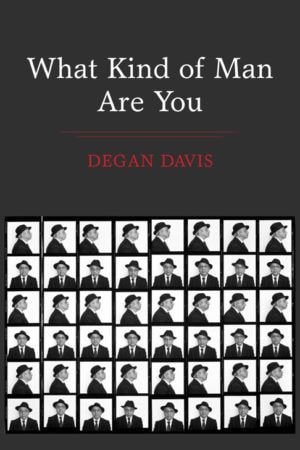Degan Davis' What Kind of Man Are YouReviewed by Joseph Schreiber
|
|
We are at a unique moment in the ongoing conversation between the sexes where tides are shifting, fueled by newly framed questions about expectations, responsibilities and equality in a climate where gender identities have become increasingly fluid. Femininity and masculinity are being redefined, but the process is complicated. For men, negotiating the space between archetypal male roles and the range of contemporary possibilities can be liberating or disconcerting, or both. It is within a new context, then, that we now ask: What are we really talking about when we talk about being a man? And what place is there, if any, for something like poetry in that conversation?
What Kind of Man Are You, the debut collection from Toronto-based poet Degan Davis, turns on this theme, drawing its strength from his own uniquely defined perspective. He comes to these meditations in mid-life, as a Gestalt therapist and the father of a school-aged daughter and infant twin boys. A listener by profession, he brings an intuitive ability to step back, notice the small things, and capture the nuances that colour the interactions of boys and men with each other and with the world around them, infusing his poetic reflections with humour and heartache. His heroes are earnest, flawed, and human. Divided into five well-framed sections, What Kind of Man Are You Opens with “Speak,” a selection of poems that address some of the common images of masculinity one might anticipate: the childhood ritual of sharing blood to secure a bond, spirited public rowdiness, the time-honoured formula of the action film, and even an ode to Edward Snowden which imagines the whistleblower reaching a breaking point as he confronts the tragic absurdity of monitoring drone footage of destruction while watching emerging life on his sister’s recorded ultrasound images. Davis, as the poetic voice, relates and recognizes himself in the scenes he crafts, implicitly or explicitly, as in “Pugilists on Toronto Island,” where he watches two men take their intoxicated conflict into the waters: |


